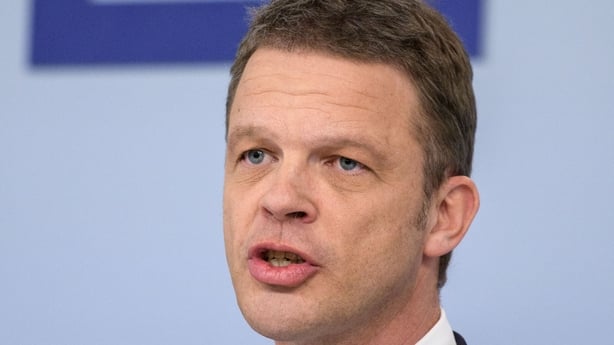Deutsche Bank has reported a surge in fourth-quarter earnings, exceeding expectations and contributing to a third consecutive year of profit that was helped by higher interest rates and buoyant trading.
The period marked an end to a four-year, €9 billion turnaround plan put in place by one of the world's most systemically important banks after years of loss.
The plan has stabilised the bank while a rise in interest rates has given lenders an additional lift.
Net profit attributable to shareholders was €1.803 billion in the three months ended December 31. That compared with €145m a year earlier and analyst expectations of around €951m.
It was a 10th consecutive quarter of profit - albeit dampened by an industry slump in dealmaking - marking for the longest streak in the black in at least a decade.
For the full year, profit was €5.025 billion compared to €1.940 billion a year earlier and the analyst view of €4.174 billion.
It was the largest annual profit since 2007, Deutsche said, and was helped by a €1.4 billion tax benefit.
Germany's biggest bank exceeded a key profit target - so-called return on tangible equity of 8% - with a figure of 9.4%, a milestone that chief executive Christian Sewing had set for the bank when it embarked on a major overhaul in 2019.
"Over the past three and a half years we have successfully transformed Deutsche Bank," said Sewing, who was promoted to the top job in 2018 to turn Deutsche around after a series of costly regulatory failings.
Still, analysts said the bank is vulnerable to a slower economy, high inflation rates, war on the continent, and regulatory issues that have plagued it over the years.
Deutsche Bank in 2019 set out on a journey to cut dependence on its volatile investment bank and rely instead on more stable businesses that serve companies and retail customers as a way to restore profitability.

It did not quite turn out that way, though recently the tides have turned, further underscored by today's figures.
Revenue at its investment bank unit fell 12% to €1.7 billion in the fourth quarter from a year earlier. That is below expectations of €1.9 billion.
The investment bank's origination and advisory business stood out, with revenue dropping 71%, mirroring slumps at other banks including Goldman Sachs and JPMorgan.
Revenue for fixed-income and currency trading, one of the bank's largest divisions, rose 27% to €1.5 billon. Still, analysts had expected €1.7 billion.
The performance will be reflected in bonuses. The investment bank's bonus pool for last year will fall by somewhat less than 10%, Reuters has reported, providing more evidence of tougher times in finance.
The investment bank's revenue decrease was countered by gains at the corporate bank and retail bank, which saw 30% and 23% increases. The divisions had long stagnated under ultra-low interest rates that lasted longer than expected.

